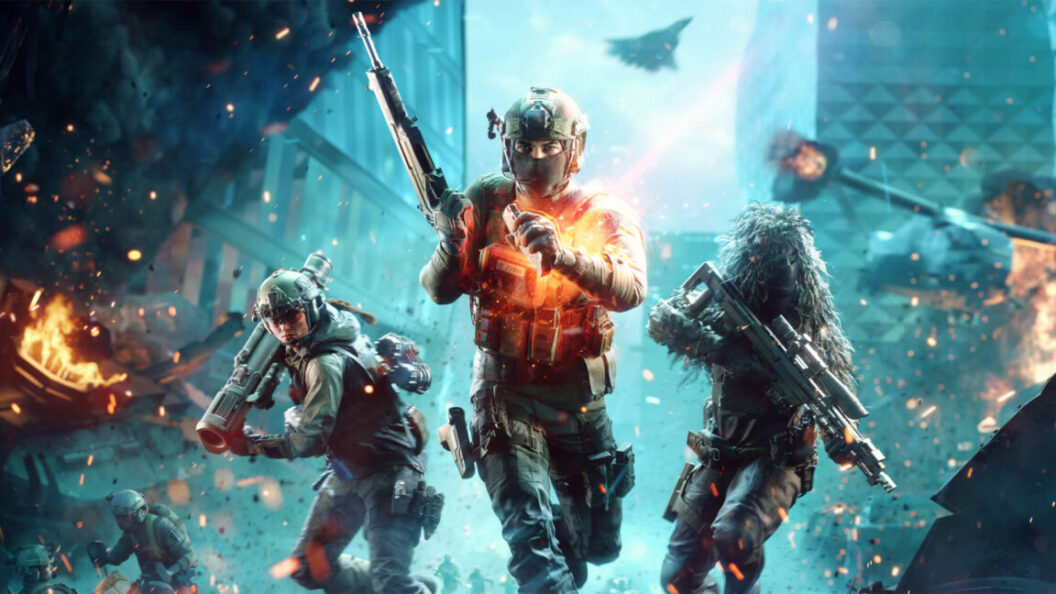Understanding the Future of Battlefield: Codename Glacier
The gaming community is buzzing with anticipation surrounding the next installment in the Battlefield franchise, codenamed Glacier. This news comes on the heels of a mixed reception for its predecessor, Battlefield 2042, which has sparked conversations about the future direction of the series. This article delves into the development history, challenges, and potential trajectory of Glacier, as EA and DICE aim to reclaim their place in the competitive online shooter market.
A Legacy at Stake
To grasp the significance of Glacier, one must look back at the success of earlier titles, particularly Battlefield 3 and Battlefield 4. Released in the early 2010s, these titles were crucial in broadening the franchise’s audience and directly competing with Call of Duty. Developed by EA-owned DICE in Sweden, these games promised exhilarating multilateral warfare and high player counts, distinguishing them from their peers.
However, the launch of Battlefield V in 2018 saw a downturn in player engagement, indicating a shift in the industry landscape. Competing titles like Overwatch and Fortnite captured the gaming public’s imagination, often overshadowing EA’s flagship series. Although DICE attempted to integrate a Battle Royale mode into Battlefield V, it ultimately did not resonate with players.
The Battlefield 2042 Experience
The trajectory shifted again with Battlefield 2042, released in 2021. Positioned as a return to form, the game was set in a futuristic landscape, yet it failed to meet player expectations. Initial reports indicate that 2042 "massively missed" its alpha target, which created challenges in delivering a polished final product. As one insider pointed out, a delay of four to six months might have been necessary to bring the game up to speed, but the decision-makers opted for a mere four- to five-week delay.
This rushed rollout meant many foundational features were either incomplete or poorly implemented, leading to widespread disappointment among fans and critics alike. The consensus was clear: the game was not fun enough, leading to calls for both better development practices and a reevaluation of the franchise’s direction.
Learning from Past Mistakes
As DICE sets its sights on Glacier, there’s a palpable sense of urgency to rectify the missteps of previous titles. Sources close to the project indicate that the development team is well aware of the criticisms levied against Battlefield 2042 and is committed to delivering a game that resonates with the community. The hope is to blend the elements that made Battlefield 3 and Battlefield 4 so engaging while also incorporating innovations that contemporary gamers demand.
To achieve this, it is crucial for DICE to engage closely with the player community during the development process. Gathering feedback at multiple stages can help ensure that Glacier meets or exceeds expectations. A stronger focus on gameplay mechanics, storytelling, and user experience could revive the series and galvanize long-time fans and newcomers alike.
The Competitive Landscape
The gaming industry continues to evolve rapidly, with new titles and gameplay styles constantly emerging. As Glacier approaches release, it will face immediate competition not only from established franchises like Call of Duty but also from innovative upstarts that continue to redefine the first-person shooter genre. DICE must not only reclaim a lost audience but also prove that the Battlefield franchise can adapt and thrive in a competitive environment.
Conclusion: A Crucial Moment for Battlefield
In summary, Glacier represents a pivotal opportunity for the Battlefield franchise to rise from the ashes of previous failures. With lessons learned from Battlefield 2042 and a commitment to listening to the player base, DICE might just regain its footing in the industry.
As anticipation builds for this forthcoming title, the gaming community is keenly watching for signs that Glacier can deliver the engaging, high-stakes combat that fans have come to expect. With significant potential for both success and failure, the road ahead will likely shape the future of one of gaming’s most iconic franchises.









